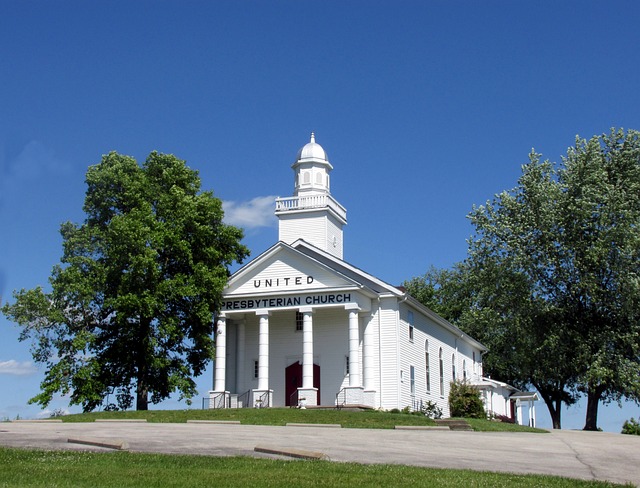The religion that is closest to Presbyterianism is Reformed Christianity.
Table of Contents
Exploring the Similarities Between Presbyterianism and Anglicanism
Presbyterianism and Anglicanism are two Christian denominations that share many similarities. Both have their roots in the Protestant Reformation and have played significant roles in shaping the religious landscape of the Western world. While there are distinct differences between the two, it is worth exploring the similarities that exist between Presbyterianism and Anglicanism.
One of the most notable similarities between these two denominations is their shared emphasis on the authority of Scripture. Both Presbyterians and Anglicans believe in the divine inspiration and infallibility of the Bible. They view it as the ultimate source of truth and guidance for their faith and practice. This shared commitment to Scripture often leads to a similar approach to interpreting and applying its teachings.
Another area of similarity is the structure of church governance. Both Presbyterianism and Anglicanism are characterized by a system of representative church government. In Presbyterianism, this takes the form of a series of governing bodies, from the local session to the regional presbytery and the national General Assembly. Anglicanism, on the other hand, is governed by a hierarchy that includes bishops, archbishops, and the General Synod. Despite some differences in the details, both denominations value the participation of the laity and the accountability of church leaders.
Worship practices also exhibit similarities between Presbyterians and Anglicans. Both traditions place a strong emphasis on liturgy and sacraments. The Book of Common Prayer, used in Anglican worship, and the Directory for Worship, used in Presbyterian worship, provide a framework for corporate worship that includes prayers, readings from Scripture, and the celebration of the sacraments. This shared commitment to structured worship creates a sense of continuity and tradition within both denominations.
Furthermore, both Presbyterianism and Anglicanism have a rich tradition of hymnody and music. Many of the hymns sung in Presbyterian churches can also be found in Anglican hymnals. Both traditions value congregational singing and the use of music to enhance worship. This shared musical heritage creates a sense of familiarity and unity between Presbyterians and Anglicans.
In terms of theology, there are also areas of overlap between these two denominations. Both Presbyterianism and Anglicanism affirm the central doctrines of the Christian faith, such as the Trinity, the divinity of Christ, and salvation by grace through faith. While there may be some differences in emphasis and theological nuances, the core beliefs of these two traditions are largely in agreement.
Despite these similarities, it is important to note that there are also significant differences between Presbyterianism and Anglicanism. These differences can be seen in areas such as the understanding of the sacraments, the role of bishops, and the interpretation of Scripture. However, it is the shared similarities that provide a foundation for dialogue and cooperation between these two denominations.
In conclusion, Presbyterianism and Anglicanism share many similarities that stem from their common Protestant heritage. Both traditions emphasize the authority of Scripture, have a representative form of church government, value structured worship, and affirm the central doctrines of the Christian faith. While there are differences between the two, exploring the similarities can foster understanding and appreciation for the rich diversity within the Christian tradition. Whether you identify as Presbyterian or Anglican, it is worth recognizing the common ground that exists between these two denominations.
Comparing Presbyterianism and Lutheranism: A Closer Look at Their Beliefs

Presbyterianism and Lutheranism are two branches of Christianity that share many similarities in their beliefs and practices. While they have distinct differences, they also have a lot in common, making them two of the closest religions to each other.
One of the main similarities between Presbyterianism and Lutheranism is their belief in the authority of the Bible. Both denominations hold the Bible as the ultimate source of truth and guidance for their faith. They believe that the Bible is the inspired word of God and should be followed in all matters of faith and practice. This shared belief in the importance of scripture is a significant factor that brings these two religions closer together.
Another commonality between Presbyterianism and Lutheranism is their belief in the doctrine of justification by faith alone. Both denominations emphasize that salvation is a gift from God that cannot be earned through good works or personal merit. Instead, they believe that individuals are justified before God solely through faith in Jesus Christ. This shared belief in the centrality of faith in salvation is another aspect that makes these two religions closely related.
Presbyterianism and Lutheranism also share a similar view on the sacraments. Both denominations recognize two sacraments: baptism and the Lord’s Supper. They believe that these sacraments are outward signs of God’s grace and are essential for the spiritual growth and nourishment of believers. While there may be some differences in the way these sacraments are administered and understood, the overall belief in their significance is a common ground between Presbyterianism and Lutheranism.
In terms of church governance, Presbyterianism and Lutheranism also have similarities. Both denominations have a strong emphasis on the role of elders in the church. They believe in the importance of shared leadership and decision-making within the church community. This shared emphasis on the role of elders in church governance is another aspect that brings these two religions closer together.
Despite these similarities, there are also some differences between Presbyterianism and Lutheranism. One significant difference is their view on predestination. While both denominations believe in the sovereignty of God, Presbyterianism tends to have a stronger emphasis on the doctrine of predestination. Presbyterians believe that God has predestined certain individuals for salvation, while Lutherans hold a more moderate view on this topic.
Another difference between Presbyterianism and Lutheranism is their worship style. Presbyterian worship tends to be more formal and structured, following a set liturgy and order of service. On the other hand, Lutheran worship can vary in style, ranging from traditional liturgical services to more contemporary and informal worship. This difference in worship style reflects the diverse cultural and historical contexts in which these two denominations have developed.
In conclusion, Presbyterianism and Lutheranism are two closely related religions that share many similarities in their beliefs and practices. They both emphasize the authority of the Bible, the doctrine of justification by faith alone, the importance of sacraments, and the role of elders in church governance. While there are some differences in their views on predestination and worship style, these do not overshadow the common ground that exists between these two denominations. Whether you identify as Presbyterian or Lutheran, you can find comfort in knowing that these two religions are closely related and share a strong foundation in the Christian faith.
The Influence of Calvinism on Presbyterianism: Understanding the Doctrinal Connections
Presbyterianism is a branch of Protestant Christianity that traces its roots back to the teachings of John Calvin, a prominent figure in the Reformation movement of the 16th century. As such, it is often associated with Calvinism, a theological system that emphasizes the sovereignty of God and the authority of Scripture. While Presbyterianism shares many similarities with Calvinism, it is important to understand that they are not synonymous. In this article, we will explore the influence of Calvinism on Presbyterianism and shed light on the doctrinal connections between the two.
Calvinism, named after John Calvin, is a theological framework that seeks to interpret and understand the teachings of the Bible. It places a strong emphasis on the sovereignty of God, asserting that God is in control of all things and that human beings are inherently sinful. This belief in the total depravity of humanity is a central tenet of Calvinism and has had a profound impact on Presbyterian theology.
Presbyterianism, on the other hand, is a specific denomination within Protestant Christianity that is heavily influenced by Calvinist theology. The Presbyterian Church is organized around a system of governance that is characterized by the rule of elders, who are elected by the congregation. This system of church government is known as Presbyterian polity and is a direct result of Calvinist principles.
One of the key doctrinal connections between Calvinism and Presbyterianism is the belief in predestination. Calvinists believe that God has predestined certain individuals to be saved and others to be damned. This belief is rooted in the idea that God’s sovereignty extends to every aspect of human life, including salvation. Presbyterians, while not all subscribing to the doctrine of predestination, generally accept the concept as a part of their theological heritage.
Another important aspect of Calvinism that has influenced Presbyterianism is the belief in the authority of Scripture. Calvinists hold that the Bible is the ultimate authority in matters of faith and practice. This emphasis on the Bible as the Word of God has shaped Presbyterian worship and theology, with a strong emphasis on the preaching of the Word and the study of Scripture.
Furthermore, both Calvinism and Presbyterianism place a strong emphasis on the importance of the church community. Calvinists believe that the church is a visible manifestation of the invisible body of Christ and that it plays a crucial role in the life of the believer. Presbyterians, following in this tradition, value the community of believers and the role of the church in nurturing and supporting the faith of its members.
While Presbyterianism is closely associated with Calvinism, it is important to note that not all Presbyterians adhere to every aspect of Calvinist theology. There is a diversity of beliefs and practices within the Presbyterian Church, and individuals may interpret and apply Calvinist principles in different ways.
In conclusion, Presbyterianism is a branch of Protestant Christianity that is heavily influenced by Calvinism. The teachings of John Calvin, particularly his emphasis on the sovereignty of God and the authority of Scripture, have shaped Presbyterian theology and practice. While there are doctrinal connections between Calvinism and Presbyterianism, it is important to recognize that they are not identical. Presbyterianism is a distinct denomination with its own unique beliefs and practices, even as it draws inspiration from the broader Calvinist tradition.
Presbyterianism and Reformed Christianity: Unraveling the Shared History and Practices
Presbyterianism and Reformed Christianity: Unraveling the Shared History and Practices
When it comes to religion, many people find themselves searching for a spiritual path that aligns with their beliefs and values. For those who are curious about Presbyterianism, it’s natural to wonder which other religions share similar principles and practices. In this article, we will explore the question: What religion is closest to Presbyterian?
To understand the answer, we must first delve into the history and core beliefs of Presbyterianism. Presbyterianism is a branch of Protestant Christianity that traces its roots back to the 16th-century Reformation. It was founded by John Calvin, a French theologian, and gained popularity in Scotland, where it became the established church.
Presbyterians believe in the sovereignty of God, the authority of the Bible, and the importance of faith and grace. They emphasize the concept of predestination, which suggests that God has already determined who will be saved. This belief sets them apart from other Christian denominations.
One religion that shares many similarities with Presbyterianism is Reformed Christianity. In fact, Presbyterianism is considered a subset of Reformed Christianity. Both traditions originated from the teachings of John Calvin and share a common theological heritage.
Reformed Christianity, like Presbyterianism, emphasizes the authority of the Bible and the sovereignty of God. It also places a strong emphasis on the doctrine of predestination. However, Reformed Christianity is a broader term that encompasses various denominations, including Presbyterianism.
Another religion that shares some similarities with Presbyterianism is Congregationalism. Congregationalists also trace their roots back to the Reformation and share a similar theological heritage. Like Presbyterians, Congregationalists believe in the autonomy of individual congregations and the importance of democratic decision-making within the church.
While Presbyterianism and Congregationalism have some commonalities, there are also notable differences between the two. Presbyterianism is characterized by a hierarchical structure, with governing bodies at the local, regional, and national levels. Congregationalism, on the other hand, places more emphasis on the autonomy of individual congregations and tends to have a more decentralized structure.
It’s worth noting that while Presbyterianism has close ties to Reformed Christianity and Congregationalism, it is a distinct denomination with its own unique practices and traditions. Presbyterian churches are known for their emphasis on orderly worship, the use of committees for decision-making, and the practice of electing elders to serve as spiritual leaders within the congregation.
In conclusion, when it comes to finding a religion that is closest to Presbyterianism, Reformed Christianity and Congregationalism are the most closely related. Both share a common theological heritage and emphasize similar core beliefs. However, it’s important to remember that Presbyterianism is a distinct denomination with its own unique practices and traditions. Ultimately, the best way to determine which religion aligns with your beliefs is to explore their teachings, attend worship services, and engage in conversations with members of each faith community.
Conclusion
The religion closest to Presbyterianism is Reformed Christianity.


